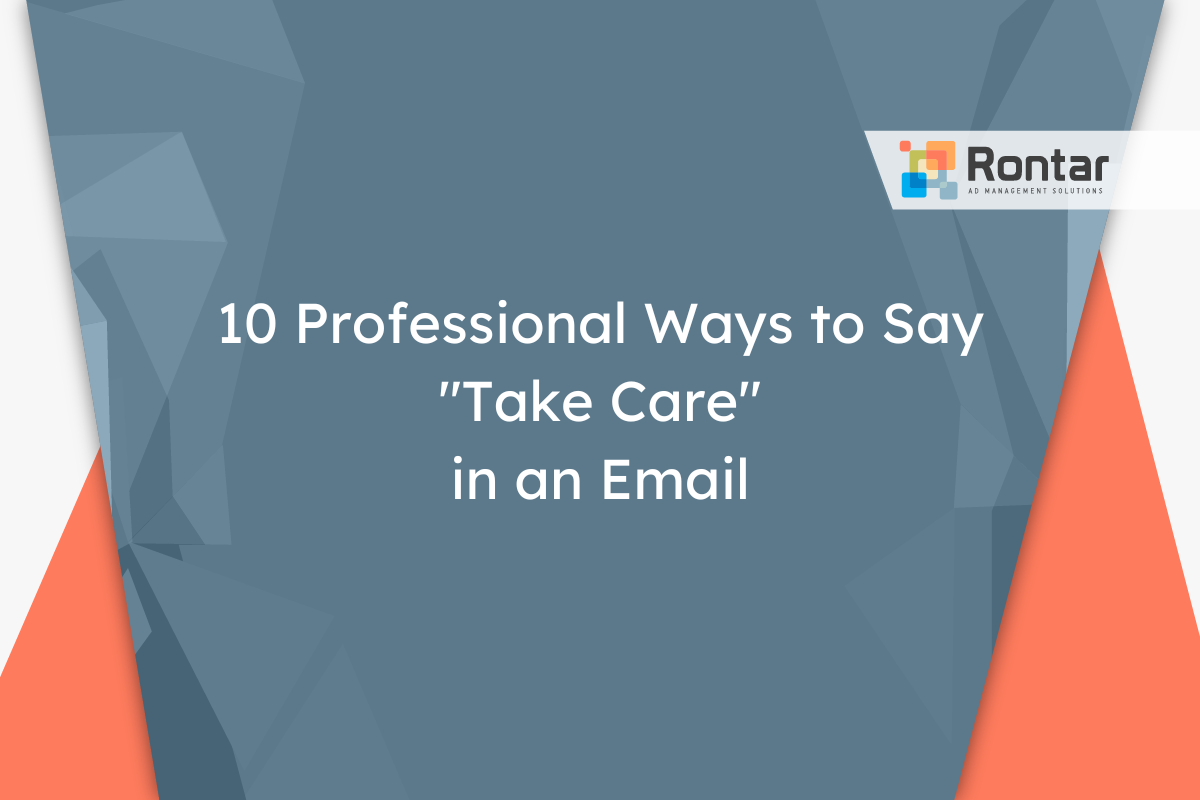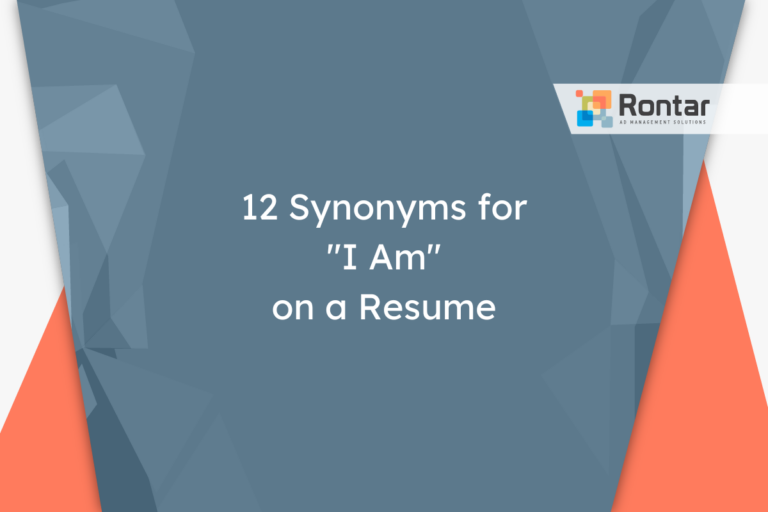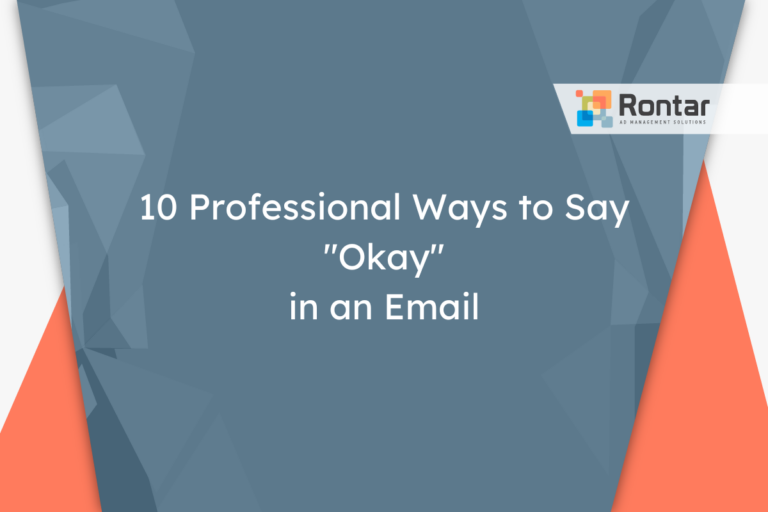10 Professional Ways to Say “Take Care” in an Email

Ending an email in a professional yet friendly manner can sometimes be a bit tricky. “Take care” is a common sign-off, but it may not suit every email or recipient.
In this article, we outline ten alternative ways to say “take care” that fit various levels of formality and situations. Each option is explained with its ideal usage, including examples to help you pick the right sign-off for your next email.
Is It Professional to Say “Take Care”?
The phrase “take care” is generally considered polite and informal. It’s common for use in emails or messages to someone you have a casual professional relationship with. The phrase creates a warm, friendly close to your email, showing thoughtfulness.
It’s mostly suitable for correspondence with coworkers you’re familiar with, clients you’ve developed a rapport with, or within less conservative industries. As for the communication channel, “take care” fits best in emails or digital messages rather than formal business letters.
Here’s how you might use “take care” in an email:
Hi Emily, I wanted to thank you for the quick turnaround on the project details earlier. Your effort is highly appreciated! Looking forward to our next collaboration. Take care, Mark
Pros:
- Shows warmth and personal interest
- Softens the end of the communication
- Appropriate for semi-formal emails
Cons:
- May not suit very formal or traditional business contexts
- Could be viewed as too casual by some recipients
While “take care” is appropriate in many situations, you might want to use an alternative phrase in more formal emails or with recipients you’re not as familiar with.
10 Other Ways to Say “Take Care” in an Email
If you’re looking to switch up how you close your emails, here are ten professional and polite alternatives to “take care”:
- Best wishes
- All the best
- Stay safe
- Be well
- Wishing you well
- Stay well
- Take good care
- Look after yourself
- In good health
- Take it easy
1. Best wishes
Compared to “take care”, “Best wishes” is slightly more formal and is a versatile sign-off for almost any email. It conveys a genuine desire for the recipient’s well-being or success.
This phrase is suited for both professional and semi-formal communications. It works well in messages sent to colleagues, clients, or higher-ups in your organization. Since it’s universally accepted, it suits emails across various industries.
Example:
Hello Thomas, Thank you for your guidance on the project. Your insights were invaluable. Best wishes, Sarah
2. All the best
“All the best” is another synonym that conveys a warm, sincere sign-off, similar to “take care”. It’s slightly more informal than “Best wishes” but remains polite and appropriate for professional use.
It’s particularly well-suited for emails to colleagues you’ve worked closely with or in situations where you’re wishing someone success in a future endeavor. This alternative is best used in emails or digital messages.
Here’s an example:
Hello Olivia, I've enjoyed collaborating with you. Good luck in your next venture! All the best, Jake
3. Stay safe
In comparison to “take care”, “Stay safe” is a more contemporary phrase that has gained popularity, especially in contexts where health or safety is a concern. It’s somewhat informal yet remains polite and caring.
This alternative is particularly apt in emails during uncertain times, such as during a health crisis, to colleagues or clients you have a friendly relationship with. It conveys a deep concern for the recipient’s well-being beyond the workplace.
Email example:
Hello Alex, It was great seeing you at the meeting earlier. Take care of yourself! Stay safe, Morgan
4. Be well
“Be well” is a succinct, positive phrase that’s a bit more formal than “take care” but shares the same underlying message of wishing health and wellness upon someone.
It’s fitting for emails to both colleagues and external contacts where there’s a desire to convey warm regards without being overly familiar. “Be well” fits seamlessly into most types of professional correspondence.
Example:
Hi Helen, Thank you for providing the documentation so promptly. Be well, Greg
5. Wishing you well
“Wishing you well” expresses a bit more formality compared to “take care” and is an excellent way to convey genuine care and professionalism. It’s a synonym that is both earnest and formal.
This phrase can be employed in communications with clients, senior management, or any professional situation where warmth and formality are preferred. Emails and letters are ideal mediums for this closing.
Example:
Hello Marcus, Your contributions to the project have been invaluable. Wishing you well, Linda
6. Stay well
“Stay well” is close in tone to “Stay safe” but with a broader, more general wish for health and wellbeing. While still on the informal side, it’s an affectionate sign-off suitable for many occasions.
This alternative fits best in emails to coworkers or industry peers, particularly in times when overall well-being is a common concern. It’s a polite way to end messages that have a friendly, caring tone.
Example:
Hi Brian, I’m looking forward to our next meeting. Let’s keep the momentum going! Stay well, Erica
7. Take good care
This phrase is a slight variation of “take care” that adds emphasis on the word “good”, making it a tad more personal. It’s informal, warm, and suggests a closer relationship with the recipient.
We recommend using this closing in emails to peers or colleagues with whom you have a comfortable and friendly relationship. It’s especially fitting for messages or emails where providing reassurance or expressing personal concern is appropriate.
Example:
Hi Jamie, Your feedback on the proposal was incredibly helpful—thank you. Take good care, Nicole
8. Look after yourself
More personal than “take care”, “Look after yourself” is an informal and polite expression that shows concern for someone’s wellbeing. It conveys a deeper level of care, usually in a friendly context.
This closing is best for emails to colleagues you are familiar with or friends in professional settings. It’s a thoughtful sign-off that adds a touch of personal concern.
Here’s an email sample:
Hello Colin, Always a pleasure to work with you on these endeavors. Look after yourself, Stephanie
9. In good health
Compared to “take care”, “In good health” leans more towards the formal side and is a unique way of wishing well-being. It’s distinctive yet polite, making it suitable for professional correspondences where health is a focus.
This sign-off can be used effectively in messages to colleagues in the healthcare sector, or in times of global health concerns. It conveys a professional and caring message.
Example:
Hello Vanessa, Thank you for your commitment to safety protocols in the workplace. In good health, Roger
10. Take it easy
“Take it easy” is definitely on the informal end of the spectrum, offering a laid-back, carefree sign-off. It’s best reserved for emails with colleagues or contacts you have a very casual relationship with.
We recommend using this alternative in situations where a relaxed, friendly tone is appropriate. It’s best suited for more casual or creative industries and should be used sparingly in more formal business settings.
Email example:
Hey Max, Loved your ideas at today's brainstorm. Can't wait to see them develop! Take it easy, Fiona
Final Thoughts
Choosing the right way to end an email can leave a lasting impression on the reader. The ten alternatives to “take care” we’ve discussed offer a range of options, from formal to more casual. Whether you’re sending a professional email or want to express sincere care in a semi-formal message, there’s an ideal sign-off for every situation.






